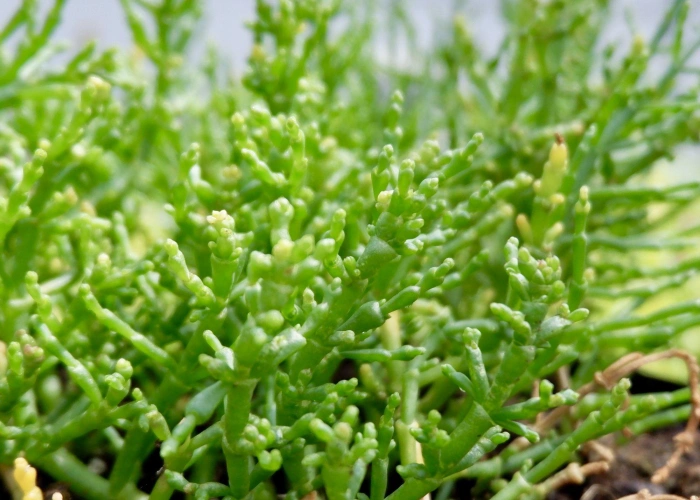Halophytes: Sustainable urban vegetable production for the future

Halophytes, salt-tolerant plants such as the European samphire (Salicornia europaea), are increasingly becoming the focus of research in the face of global challenges such as freshwater scarcity and soil salinization. With their ability to thrive in saline soils, halophytes offer innovative approaches for the nutrition of the future. As part of the second funding phase of “food4future”, intensive work is being carried out on the cultivation and use of these plants. A central focus is on the selection of suitable halophyte species with high nutritional value. Species such as green garden milkweed, sea fennel, purslane and sea kale are being examined for their nutrient profiles and cultivated under controlled conditions. Particular attention is paid to growth conditions and the stability of yields and nutrient profiles in order to establish halophytes as a reliable source of nutrition.
An urban, saline indoor cultivation system for saline food sources was developed to produce these salt plants in urban areas. Based on this prototype, further pilot plants are being developed, for example a cellar plant in the urban cellar system of the city of Kulmbach. This pilot plant simulates realistic conditions for large-scale cultivation. Modern technologies such as UVB LEDs are used to specifically promote plant growth. Circulatory approaches are also being investigated: residual materials such as waste water from fish farming and recycled fertilizers are integrated into the cultivation process as sources of nutrients. In addition to cultivation technology, this f4f project is also dedicated to further processing and product development. Valuable macro- and micronutrients are extracted from the halophytes using innovative fermentation and energy-efficient extraction processes. These enable the production of healthy and sustainable food prototypes such as fermented snacks or new types of drinks. At the same time, these processing methods help to minimize the environmental impact of processing.
Halophytes are a key resource for the sustainable transformation of agriculture and food production. They not only offer solutions for cultivation on saline soils, but also new approaches for urban agricultural systems. Together with f4f partners from science and industry, this f4f project focuses on the comprehensive research and use of these plants in order to fully exploit their potential as an innovative and environmentally friendly source of food.